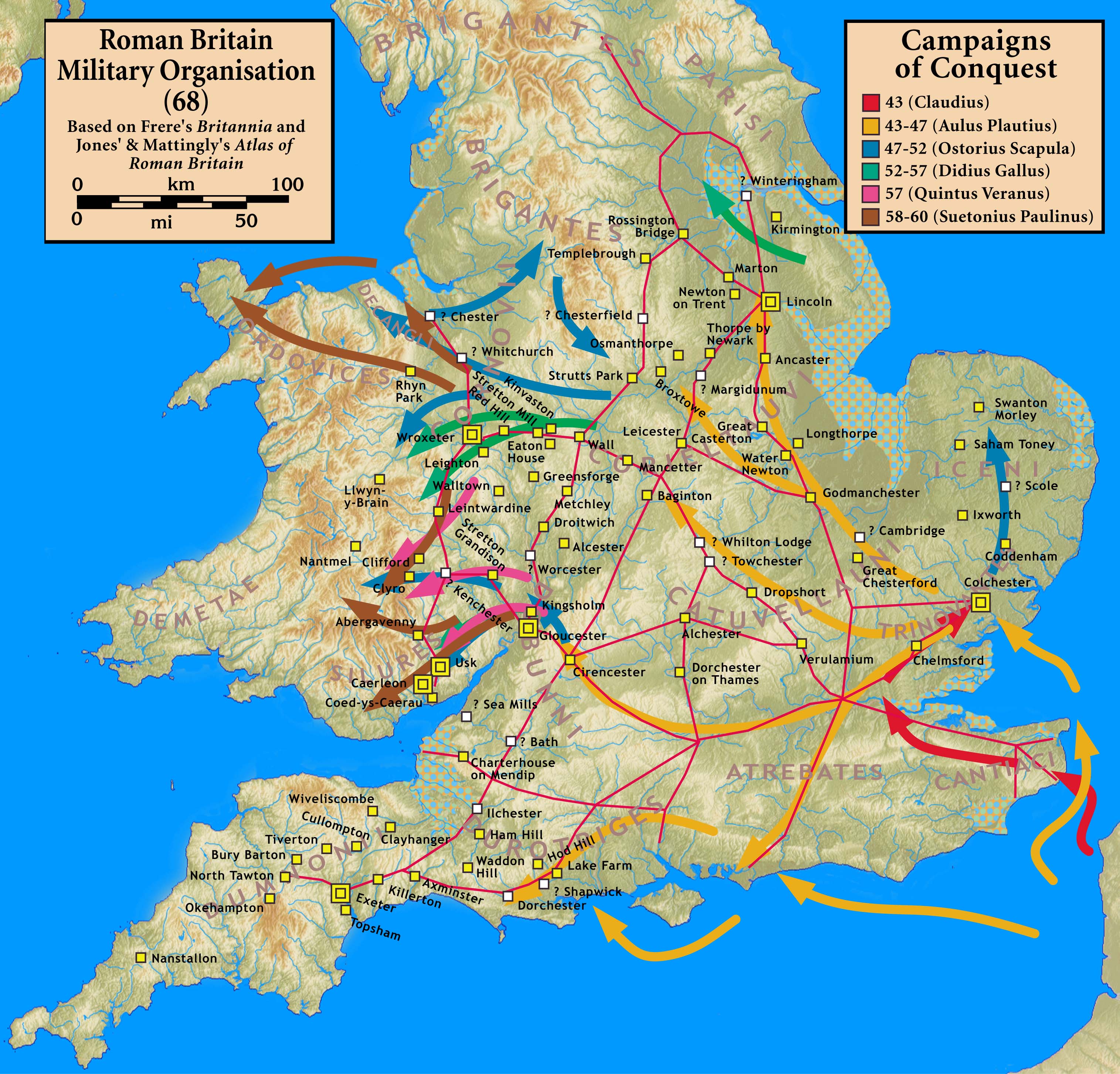Roman Britain
Trade flourished between Britain and the Roman world for a few decades after Julius Caesar left for good, in 54 B.C., but no Roman troops crossed the Channel for a good while. Eventually, a new emperor, Claudius, found the need to prove himself so he decided to have his troops invade Britain. Claudius ordered an expedition of conquest, sending 40,000 troops and several war elephants to Britain. The Romans made their mark at the Battle of Medway, on the river of the same name. (This is another of those battles for which historians still disagree on the exact location.) The British tribes had ordered themselves on the other side of the river from the Romans, and no bridge across the river existed. So the Romans sent a special detachment of auxiliaries to swim across the river and engage with the vaunted Celtic battle chariots, giving the rest of the army time to cross the river. The two large forces engaged in a full-scale battle. Estimates are that about 24,000 Romans went up against about 17,000 Celts. The battle lasted three days, and Rome prevailed.
Roman forces proved their mettle in the end and took control of much of southern Britain, led by a general named Vespasian, himself a future emperor. The Romans were brutally efficient, seizing control of large numbers of farms and settlements and dozens of hill-forts. When the time was right and the fighting was done, Claudius arrived to declare victory. He stayed in Britain all of 16 days. Rome was in Britain for much longer, however. The conquest continued; and by 47, Rome was able to build a long east-west road known as the Fosse Way, stretching from Lincoln to west Devon, that serves as the northern edge of what had become safe territory. As the Romans settled in to govern Britain, they settled in to civilize it as well – at least, that's probably what they were thinking as they introduced Roman customs, practices, and technologies to yet another conquered territory. Part 2: Settling in |
|



 The Celts retreated to the river Thames, and the Romans pressed their advantage. A three-pronged attack starting at Kent was largely successful, spreading out across the landscape. The fighting was fierce at first, but the Roman military machine eventually turned the tide. The more the Romans advanced, the lesser the resistance became.
The Celts retreated to the river Thames, and the Romans pressed their advantage. A three-pronged attack starting at Kent was largely successful, spreading out across the landscape. The fighting was fierce at first, but the Roman military machine eventually turned the tide. The more the Romans advanced, the lesser the resistance became.
